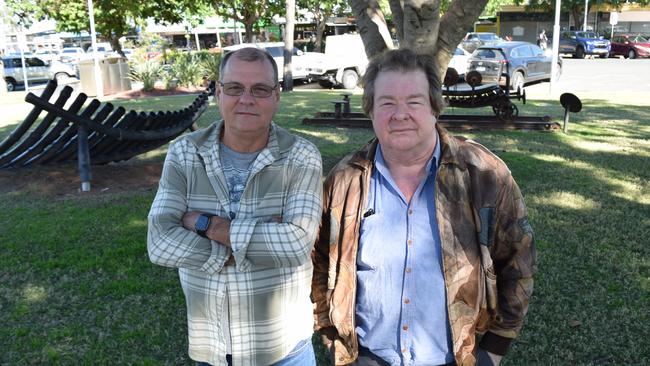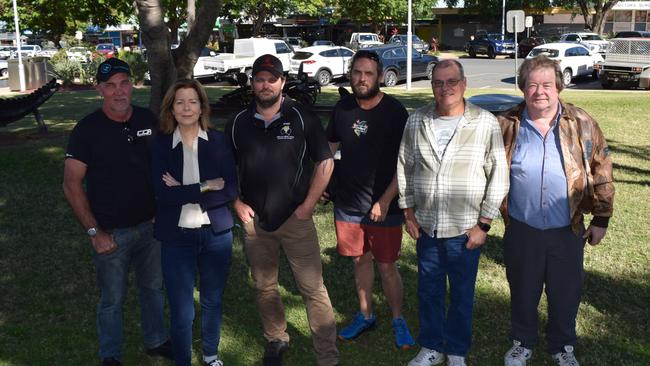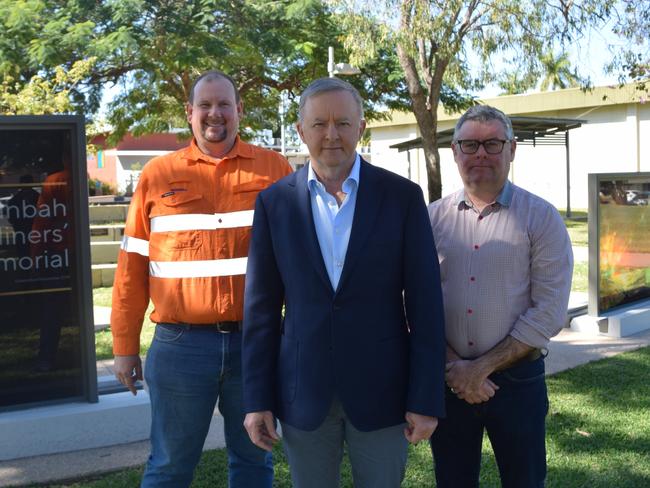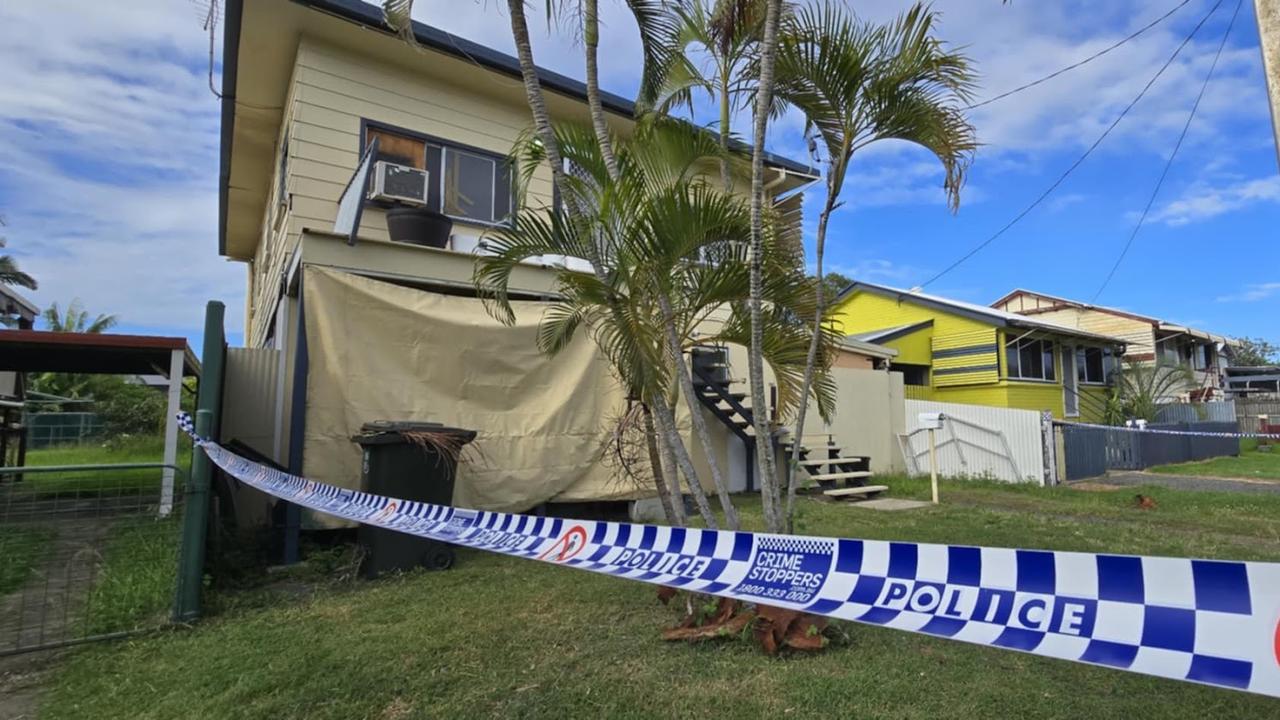Mine workers address ongoing issues from casual workforce
“You don’t know whether that gate is going to open or not and that’s the reality of it”: Onsite safety, sick days and less pay are just some of the things casual workers must sacrifice every day.

Central Queensland
Don't miss out on the headlines from Central Queensland. Followed categories will be added to My News.
Imagine waking up at 3am, driving two hours to a Central Queensland mine to start a round of work only to be locked out at the gate with the security guard passing on the news you’ve been fired.
That’s the reality many workers face every day as part of being labour hire or a casual employee at a mine site.
Open Cut Examiner at a Moranbah mine, Tony Gordon, 67, said he saw the devastation in the man’s face when he realised what happened.
“He was dressed how he should’ve been, he had everything right, including his hard hat and he was there very early,” he said.
“I never saw him again. I don’t know if a reduction in numbers, or he reported something, or he might have damaged something but generally speaking it’s over nothing at all.”
Mr Gordon, who worked as a contractor for the first eight months, was one of many mine workers speaking out about the unfair conditions labour hire and casual employees faced as part of an upcoming Senate Inquiry.
He said workers wouldn’t get housing, annual leave or sick pay, living away from their families since they had no accommodation, wouldn’t be accepted for home loans because ongoing work wasn’t guaranteed and would be paid up to $50,000 less than permanent workers, despite doing the same work.

“It’s the fear that you’re going to be dismissed at any time,” he said.
“You don’t know whether that gate is going to open or not and that’s the reality of it.
“There’s no security.
“People want to come out here to be closer to their husbands and their jobs but they don’t have accommodation.”
Prep plant operator Kevin Nunn, 62, has been fortunate to have permanent employment at a Moranbah mine for 35 years and said some of the conditions casual workers faced was unfair.
“One guy who worked with us was a bit outspoken and he’s no longer with us,” he said.
“Last year when Covid hit, one guy came to work with the flu, and I thought ‘what the hell are you doing here?’.
“He was casual and wasn’t going to get paid, so he’s going to go to work no matter what, even if he can’t perform.
“They’re scared of not making money for a start but also scared about losing their job. That’s the unfortunate thing.”

Mr Nunn said the increased casual workforce has taken a toll on the safety culture, with many people “too scared” to speak up about issues for fear of being fired.
“Until we can get the workforce back to permanency, then safety is going to suffer,” he said.
It was also taking a toll on trainers with a “constant revolving door” of workers going in and out.
“Ultimately, a lot of these labour hire workers decide to move on to other mine sites or jobs,” Mr Nunn said.
“They can’t see any future for them so they go somewhere else.
“It’s a constant revolving door for training which is very hard for our trainers. It’s going to be that forever unless things change.”
Covid-19 has derailed plans to have hearings in Moranbah on Monday and Mackay on Tuesday but the Senate hearings will be held remotely from Canberra.
The inquiry will investigate the impact of insecure or precarious employment on wages, the economy and workplace rights.
Australian Council of Trade Unions (ACTU) President Michele O’Neil said change needed to be made for the benefit of workers and their families.
“Workers paying conditions are less than permanent [workers], they don’t have the security of knowing their job’s there, it makes it tougher to get loan and being able to spend time with their families on holiday or plan for their lives, because they don’t know what the future holds,” she said.
“The senate inquiry is really important because it’s a chance for senators to hear what’s happening about insecure work and to understand the impact it has, not just on peoples paying conditions but on whole towns like [Moranbah].
“People should be treated as permanent workers if their job is ongoing and regular and there should be a limit to how many contracts you can have in a row before you’re offered permanent work.
“We want to make sure there’s a change so workers have jobs they can rely on in the future.”
Opposition Leader Anthony Albanese met with members of the mining industry at Moranbah on Sunday night, with one worker sharing a story of doing the same job for far less pay.
“I was able to meet Simon, who works at one of the mines here next to his best mate who works for a labour hire company, that is paid $40,000 a year less and doesn‘t have the same secure conditions that Simon has,” he said.
“This is an industry that employs, directly and indirectly, over a million Australians who benefit from this sector.
“And we need to make sure that the resources sector continues to be able to have a future.”



